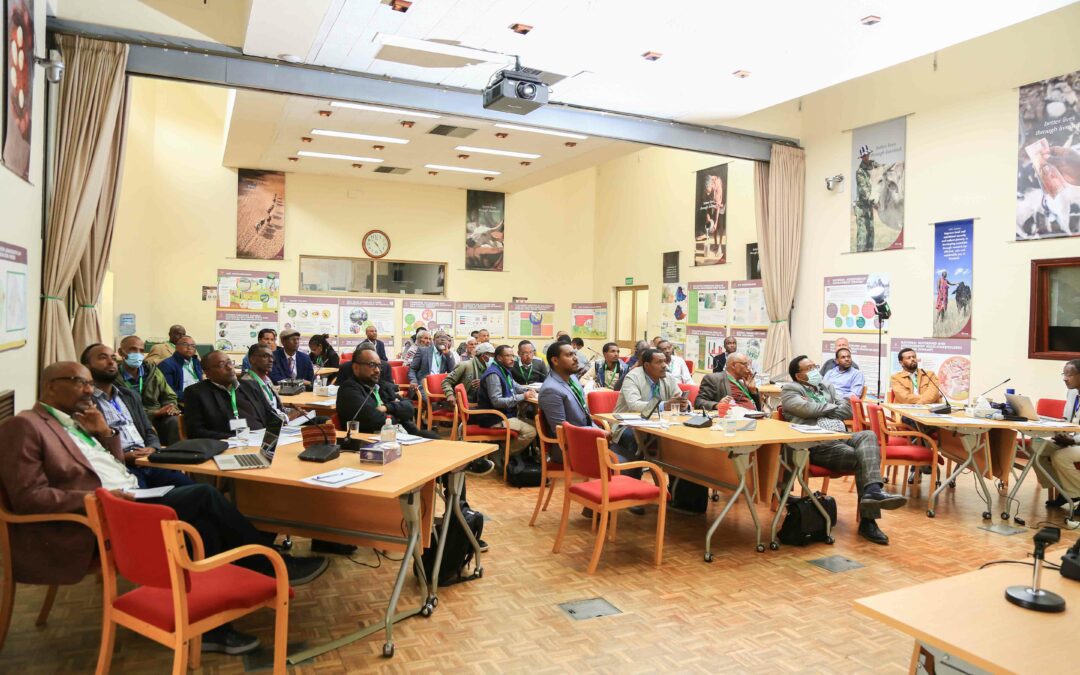By Sabrina Chesterman
A wide range of restoration stakeholders and partners, ranging from Government officials to community farmers, were brought together to showcase evidence, achievements, and ongoing efforts of the Regreening Africa program. The national stakeholder workshop, themed Inclusive and Evidence-Based Approaches to Accelerating Land Restoration in Ethiopia, hosted by the Regreening Africa project provided a platform to plan for the future programming of the project to ensure that restoration efforts are not only sustained, but scaled up in the coming decade.
Opening the workshop Ato Kebede, the General Director of the Ethiopian Forestry Development highlighted the environmental challenges faced by Ethiopia and the successes in land restoration that have occurred as a result of Regreening Africa and linkages to enhance national government initiatives.
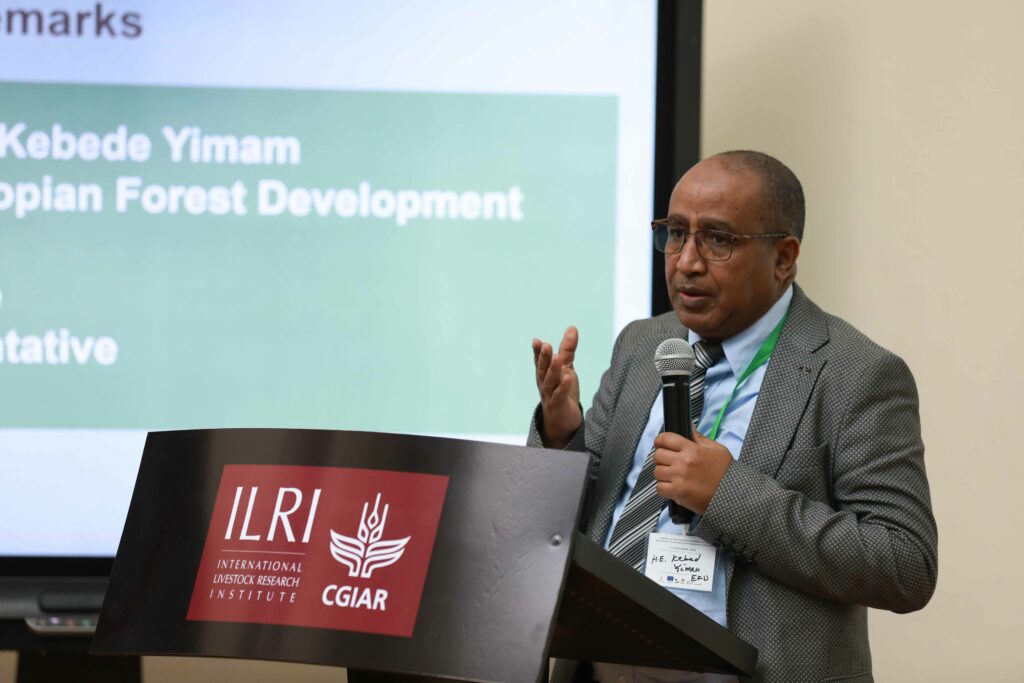
The General Director of Ethiopian Forestry Development, Ato Kebede, delivers the opening remarks at the SHARED workshop. Photo: Apollo Habtamu/ILRI
Malefia Tadele, project manager from Catholic Relief Services (CRS) Ethiopia, shared two major Regreening Africa implementation successes : Farmer Managed Natural regeneration (FMNR), which has been highly effecting regreening strategy at a farmer level and has been well scaled, and the successful implementation of farmer exclosures. With more than 125 000 hectares of degraded land put under exclosures there has been improvement of vegetation cover, increased species diversity, job creation for women and youth, and benefits to farmers through selling grass, honey production and access to fodder.
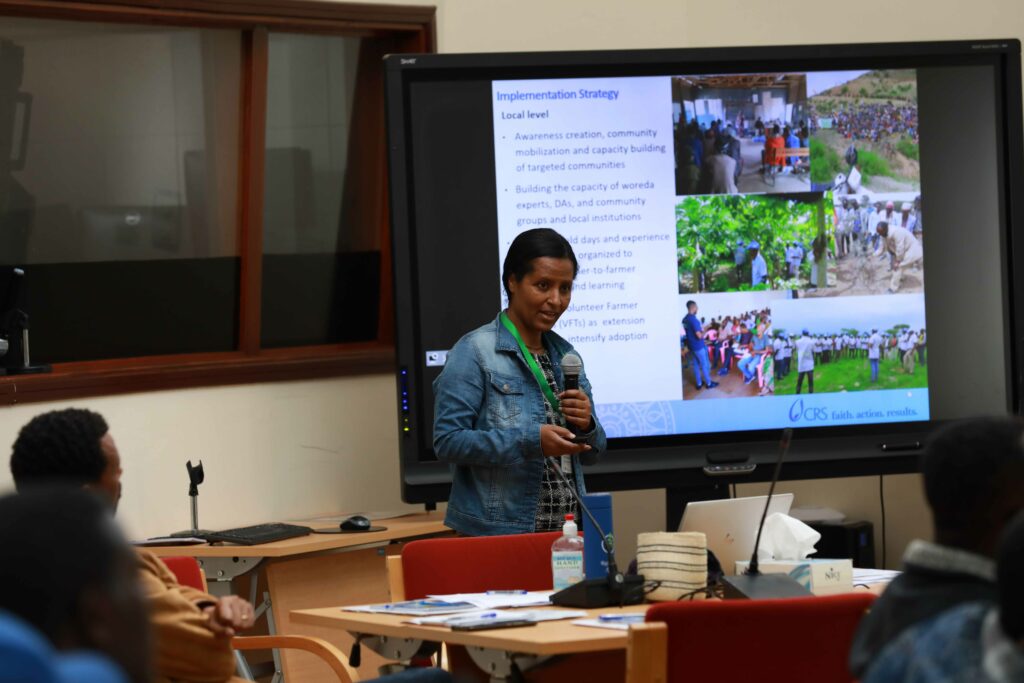
Project manager Malefia Tadele from Catholic Relief Services (CRS) Ethiopia makes a presentation. Photo: Apollo Habtamu/ILRI
An interactive session on evidence and experience where participants explored and interrogated current practices, policies, and scientific findings regarding land restoration practices in Ethiopia was a central component of the workshop. A wide range of thematic areas were covered – including, community voices, value chain aims and objectives, and interventions – each of which was facilitated by subject matter experts who sparked and engaged discussion amongst participants.
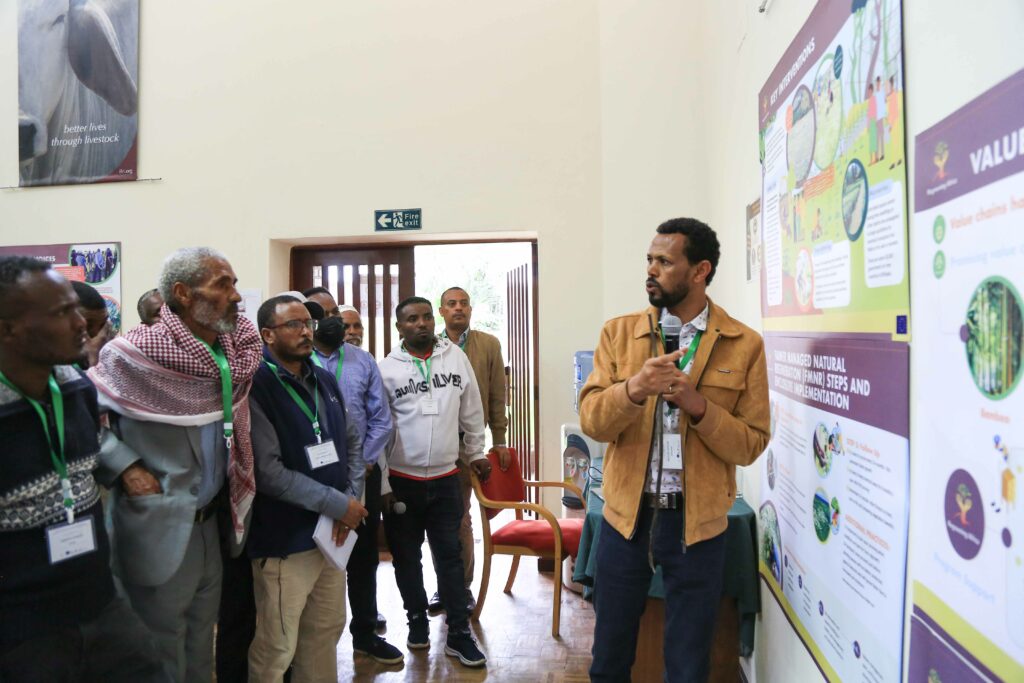
Niguse Hagazi of CIFOR-ICRAF gives a presentation at the evidence and experience wall during the interactive session. Photo: Apollo Habtamu/ILRI
After an informative presentation on national actions and aspirations by Tefera Tedesse,the Natural Resources Management Directorate Director at the Ministry of Agriculture, participants gathered in working groups to identify existing policy challenges and to discuss incentives and disincentives that contribute to achieving desired land restoration outcomes. Included in the workshop was a session on opportunities for scaling, led by Hayleyesus Agonafer from World Vision Ethiopia, partner in the project implementation, who discussed the important role of sustainability planning with the community and stakeholders to ensure that the land restoration practices being implemented continue after the Regreening Africa program transitions in 2023. Hayleyesus presented the Regreening Africa six step sustainability plan but emphasized that sustainability cannot be achieved by any single organization and instead requires combined efforts from communities, government, private sector, and donors. He called on participants to “work together to achieve greater impact with synergy.”
CIFOR-ICRAF’s Endalkachew Woldemeskel, who lead the workshop facilitation and Niguse Hagazi also presented on the formation of the National watershed management and agroforestry Platform. The project played an integral role in creating synergies with government stakeholders at national, zone and district levels.
Participants strategized future opportunities to sustain and enhance the project successes in Ethiopia such as Watershed and Forest Proclamation, leveraging previous successful activities and government strategies, developing a restoration map, and further improving digital technologies. Future partnerships and platforms were identified, as well as scaling practices and enabling policies.
Strong messages that emerged from the workshop are that robust partnerships and adaptation to local context are both essential to reach restoration goals. Some of the key challenges highlighted are uncontrolled grazing that hinders natural regeneration, high prices of grafted seedlings, and lack of technical skills for tree management practices in exclosures.
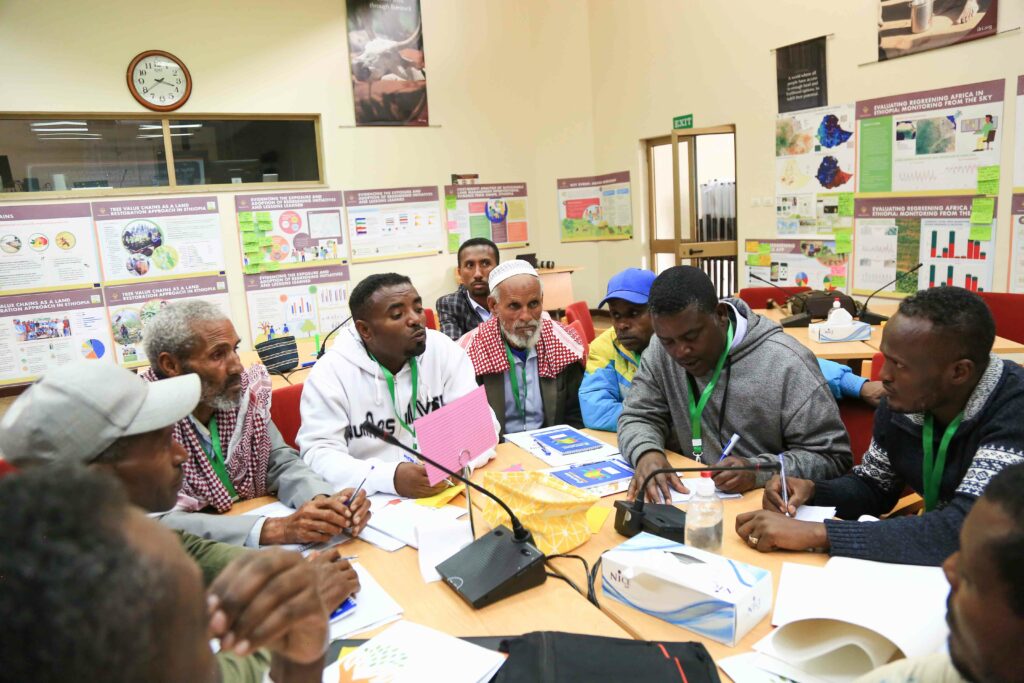
Participants express their views during a group discussion. Photo: Apollo Habtamu/ILRI
Further key messages from the workshop include:
- Diversification of approaches to addressing land restoration is key.
- Scaling land restoration cannot be successful without integrating livelihood activities with immediate benefits for farmers and landowners.
- At a grassroots level, school clubs and the volunteer farmer training approach allowed for localised approaches to be scaled and coordinated.
- The program has been community owned. To firmly embed the programs sustainability additional support within the districts/woredas toward sustainability planning and implementation is needed.
The workshop closed with a celebration of co-creation and commitments where participants put forward a set of commitments to restoration. Some of the commitments were to share knowledge on FMNR with other farmers, support local communities for land restoration of degraded land across Ethiopia, and ensure the sustainability and momentum of the Regreening Africa project achievements.
For more information on the workshop, including the workshop report and resources please follow this link.
This story was produced with the financial support of the European Union. Its contents are the sole responsibility of Regreening Africa and do not necessarily reflect the views of the European Union.

